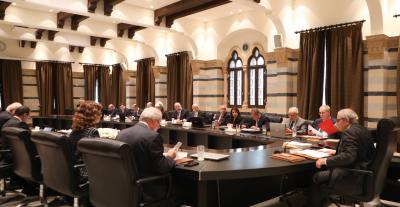Financial markets appear less jittery than after the dissolution on June 9. The Monday following the first round of legislative elections, the Paris stock exchange closed up by 1% after opening with a 2.6% increase.
While markets hate political uncertainties, the possibility of a National Assembly without an absolute majority for the National Rally (RN) (French right-wing) or France Insoumise (LFI) (French far-left) seems to reassure them. Financial investors ultimately prefer political deadlock and an unattainable majority over the implementation of programmatic measures deemed too negative for France's depleted public finances: French public debt stands at €3.1 trillion, representing 110% of the country's annual economic output.
The market is not political. Its rationality is financial... or for others, its irrationality is legendary, even exuberant, to quote the aphorism of former Federal Reserve Chairman Alan Greenspan. Financial circles fear above all that "the sustainability of French debt will be jeopardized by economic programs that are either unfundable or unfunded," notes a Parisian expert. This suggests a certain rationality! While waiting for the result of the second round of French legislative elections, European markets are holding their breath: Berlin has expressed concern that French budget deficits could spiral even more dangerously out of control. This concerns the second-largest economy in the Eurozone and thus the future of the euro.
The least favorable scenario for European financial markets, an absolute majority for the alliance of French leftists under the domination of LFI, is almost ruled out. The scenario of an RN majority is still quite possible, analysts believe. It causes less anxiety among investors. François Asselin, the President of French SMEs, finds "the economic program of the New Popular Front frightening." He adds that "The National Rally also has an imperfect economic program, such as retirement at 60." Since Macron's incredible decision to dissolve the Chamber of Deputies, the Paris stock exchange's leading index has dropped by 6.5% for the CAC 40. So the modest rise at the beginning of the week is just a slight recovery with some quick profit-taking! The Paris stock exchange remains below its pre-dissolution level... Following the first polls from Wednesday projecting the composition of the new Assembly, the CAC 40 could very well fall sharply again! In any case, France's economic and budgetary prospects remain negative... New National Assembly or not! Because the fundamentals of our economy are poor. The debt wall is ahead of us; the deficit hole is deep. Any new government in France will have to conduct a precise financial audit of the exact state of a financially disfigured and fractured France like never before.
 French
French

















